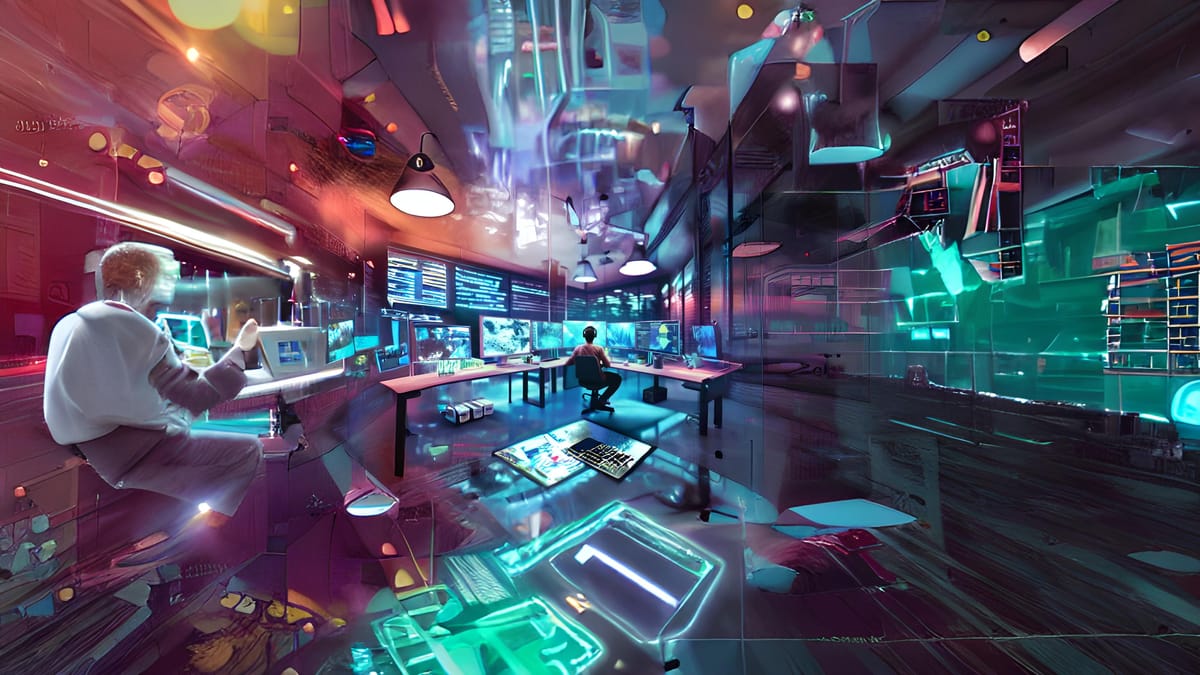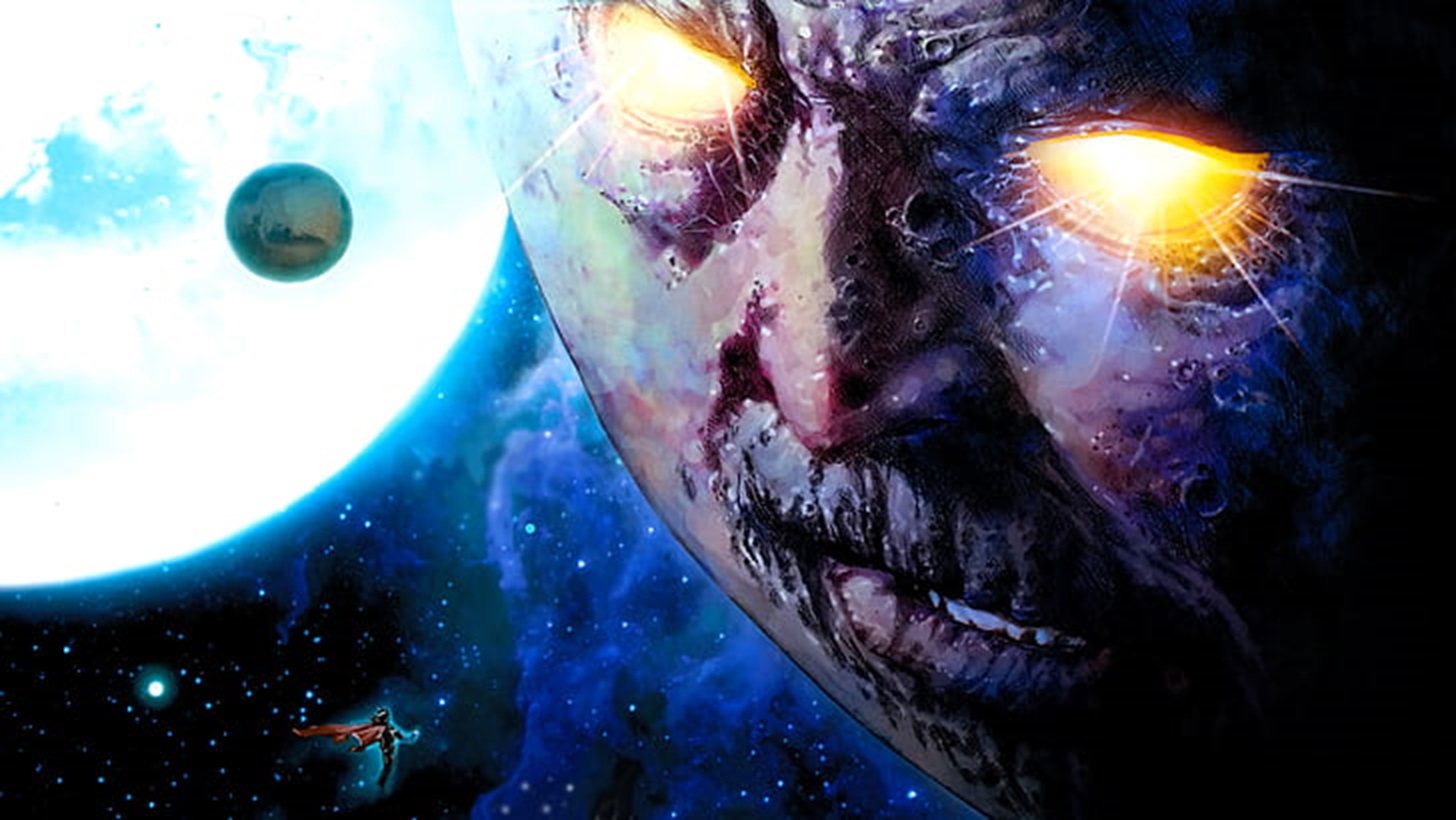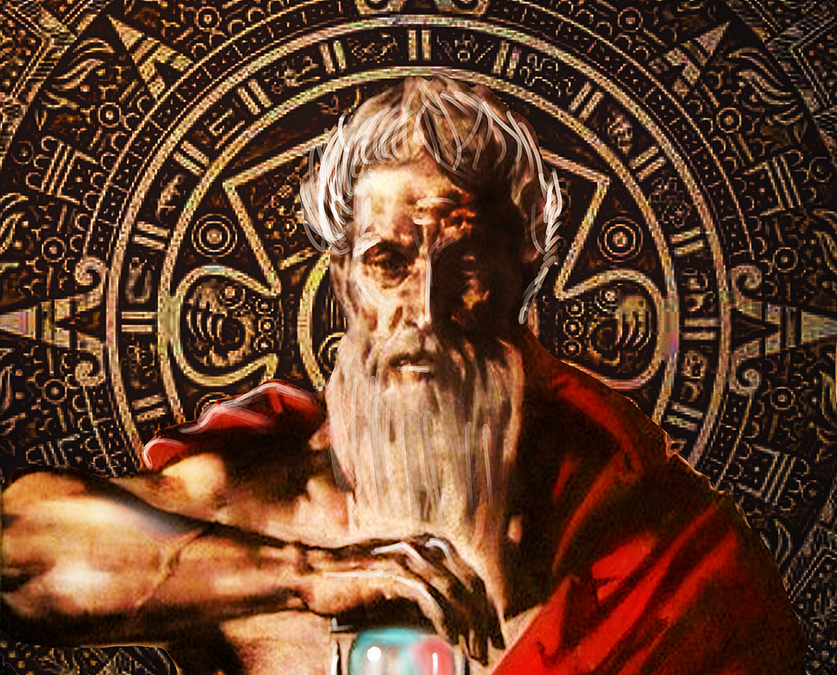The Extrinsic Self is always ‘on the outside’ – it’s always ‘on the outside, looking in’. It can’t ever partake in life, even though it longs to do so; it’s always on the wrong side of an impenetrable glass wall and so all it can ever do is ‘ape what it thinks life is’; all it can do is ‘mimic what it (mistakenly!) imagines ‘living’ to be all about’. In this way we can say the Extrinsic Self is a guess that the System of Thought makes about ‘who we are’ (or – as we could also say – it is a ‘surrogate’, a ‘token identity’ that we will supposedly be able to redeem at some point). The ES can never find the redemption for which it pines however; it can’t ever be ‘redeemed’ because it’s ‘a shadow that mistakes itself for the light’. The only redemption the fictional self can ever find is redemption of the strictly fictional variety, therefore…
Everything that comes out of The System of Thought – that Great and Fearsome Amoeba – is a ‘cheap token’ (or ‘tacky simulation’) of what is actually real. The ‘original value’ is being reproduced by the simulation, but it is being reproduced in such a way as to grossly devalue it, and – ultimately – make an unholy mockery of it. This is the Demiurgic Principle in action, this is the Demiurgic Principle ‘doing its thing’, doing what it does so extraordinarily well.
The Demiurgic Principle, we might therefore say, is based upon copying as opposed to creativity, the former being the ‘lower analogue’ of the latter. It’s a lower analogue (rather than being one of an equivalent value) because it’s not real, (it’s not real since reality itself can’t be simulated). Reality can’t be simulated (or can’t be ‘copied’, if we want to put it like that) and so we have to make do with the crude analogue or token instead. Instead of what Carse calls the Infinite Game (which is where we open-endedly explore life) we restrict ourselves to various tedious Finite Games (in which we endlessly shuffle and reshuffle our sterile ideas about life, hoping one day to come up thereby with a combination that actually means something). We’re looking in the wrong place but we’ll never admit that to ourselves…
Our agenda, as finite game-players, is to try to promote and defend the idea that we have of ourselves, and this comes down to ‘faithfully repeating the pattern that we started off with’. This is the Conservative Mode therefore and in the Conservative Mode of being what we’re doing is reproducing what already know to be ‘good’. We’re constantly copying our own ideas in an endless ‘loop’ so that nothing else ever gets a look in. We don’t (if we can at all help it) allow any ‘breaks in the transmission’, we don’t take any chances. The smart thing – it seems to us – is to ‘hold on tightly to what we’ve got’ (or onto what we think we’ve got) and perpetuate it for as long as we can.
This conservative orientation of ours works against us however, predicated as it is upon ‘the avoidance of risk’. Psychologically speaking, the avoidance of risk as the denial of life itself : when we can’t let go of what we have – out of the fear of taking any chances with it – then ‘what we have’ ceases to be a source of joy and becomes instead a source of great misery. It becomes a heavy stone that we have to drag along behind us wherever we go and even then we will continue to cling – we will hold on to ‘what we’ve got’ more tightly than ever, we’ll cling to it until the bitter end. The unconscious logic here is ‘Better the devil you know than the one you don’t’!
The Conservative Principle seeks to preserve what is valuable (or celebrate what is valuable) but it has the opposite result – what is genuinely valuable (which is to say, the real thing, not the cheap token) is lost as a result of our efforts to safeguard it. By avoiding risk we avoid life –
Truly, truly, I say to you, unless a grain of wheat falls into the earth and dies, it remains alone; but if it dies it bears much fruit. [John 12: 24]
Conservative Mode isn’t just about trying to keep things the same and not wanting to explore reality however, it also comes into play every time we ‘make a plan’, every time we ‘conceive a goal’. Plans and goals mean nothing if the Mind State to which they belong (i.e., the Mind State to which the plan or goal is important) changes. The Mind State is the same thing as the ‘Ego-Identity’ or ‘Extrinsic Self’ so we can also say that unless the Extrinsic Self stays the same then there will be no good feeling (no euphoria) for us upon attaining the goal (or upon bringing the plan to fruition). It will all be in vain. Thus, the ES itself always has to be playing the ‘Waiting Game.’ If it stopped playing the Waiting Game then it would immediately cease to exist, and – from its own point of view, at least – this can hardly be seen as an advantage!
This is one way of talking about this matter of ‘copying’ – we can say that the Extrinsic Self creates itself by copying itself (or by repeating itself). All we’re looking at here is ‘a long line of copies’ therefore, each one faithfully mimicking the one that preceded it! This is my ‘narrative for myself’, this is ‘the continuous unbroken extension of myself’. Linearity is copying, we might say – it is the copying out of a geometrical point in the linear dimension of time. Equivalently, we can say that the Extrinsic Self is the copying out of a geometrical abstract point in the linear dimension of time; geometrical points are always abstract – they are always abstract because they exclude everything and contain nothing!
We cling to what we know because we don’t trust what we don’t know; we don’t believe there could be anything good in what we don’t know. We cling to what we know because we think this is the best way to benefit ourselves, the best way to ‘save’ ourselves; and yet by trying to ‘save ourselves’ (or benefit ourselves) we are actually losing ourselves. Another way to put this would be to say that we are being hypnotised by some kind of awesomely powerful illusion – the illusion being that there is such a thing as ‘improvement versus disemprovement’, the illusion that there is such a thing as ‘gain versus loss’. As long as we are under the influence of this super-powerful illusion then we will continue along the (linear) tracks that thought has laid down for us; as long as we’re seeking to benefit ourselves we’re going astray. Hence, Jung tells us,
The more you deliberately seek happiness the more sure you are not to find it.
We’re trying to benefit ourselves (and in our imaginations we might even sometimes be succeeding in this) but the reality is that we are – at all times – ‘sleepwalking to our doom’. We are sleepwalking towards our doom because when we are playing ‘the Waiting Game’ we’re identifying with an abstract idea, which means that even if we do win the prize – whatever that might be – this will do us no good at all. It will do us no good because the abstract idea or construct is incapable of ever benefiting from any outcome, no matter how prized. The ES is a ‘hungry ghost’ and it can’t eat real food! It can want it but it can’t have it. A mental construct can’t enjoy or appreciate anything since it is ‘only a mental construct’. So all that is left to the Extrinsic Self is for it to play the Waiting Game forever, hoping for something that will never happen. The ES has to play the Waiting Game forever because what it needs (or what it’s waiting for) isn’t real. The linear dimension is also the Dimension of Illusion, therefore.
There is truth even in an illusion however, and this truth is represented within the inverted terms of our little ‘virtual-reality bubble’ by the Law of Deterioration. It is represented by ‘things not going to plan’! The Law of Deterioration is simply how the truth comes back into a situation from which it has been temporarily excluded. We see the operation of this law as a very terrible thing, as a truly sinister or dark thing, but it is simply ‘reality revealing itself’. The Law of Deterioration only applies within closed systems – which is to say, it only applies to the tacky simulation of reality which the Extrinsic Self is obliged to inhabit instead of the real thing. The system that we’re trapped in was never real in the first place and so the (apparent) deterioration that takes place within it isn’t deterioration in any final (or ‘absolute’) sense – it is only final (or absolute) for the Extrinsic self.
The process of entropic degradation is showing what’s going on (or what appears to be going on) within the context of the simulation to be untrue, to be an illusion, but it’s doing it very, very gradually so we don’t notice it happening. The disintegration or deterioration of the systems that we have identified with is a manifestation of reality (or truth) but at the same time we are resisting it with everything we’ve got. The process is happening against our will, but it’s happening all the same…
The ‘doom’ we’re sleepwalking towards is thus only a doom within the very narrow terms of ‘the-sleeper-who-doesn’t-want-to-wake-up’. As far as ‘the-sleeper-who-doesn’t-want-to-wake-up’ is concerned, this is the worst thing ever. We couldn’t think of anything worse – everything is going against us and – sooner or later – the worst thing of all is going to happen to us – we’re going to be pushed off a big metaphorical cliff. The process of being dragged kicking and screaming to the cliff edge was no fun at all, and being pushed right off isn’t great either!
The whole thing is bad news, as far as the poor old Extrinsic Self is concerned, so we can hardly blame it for cutting up so rough. We can hardly blame it for being moody, for being so regrettably negative in its outlook – it’s having a horrible time, and no one can tell it otherwise!
Image – greekboston.com






